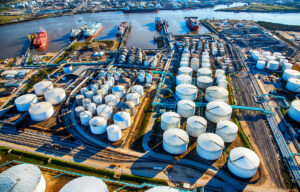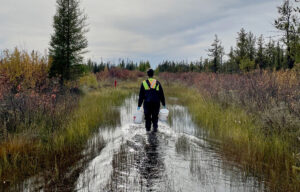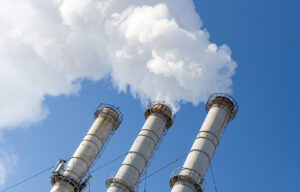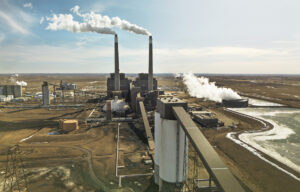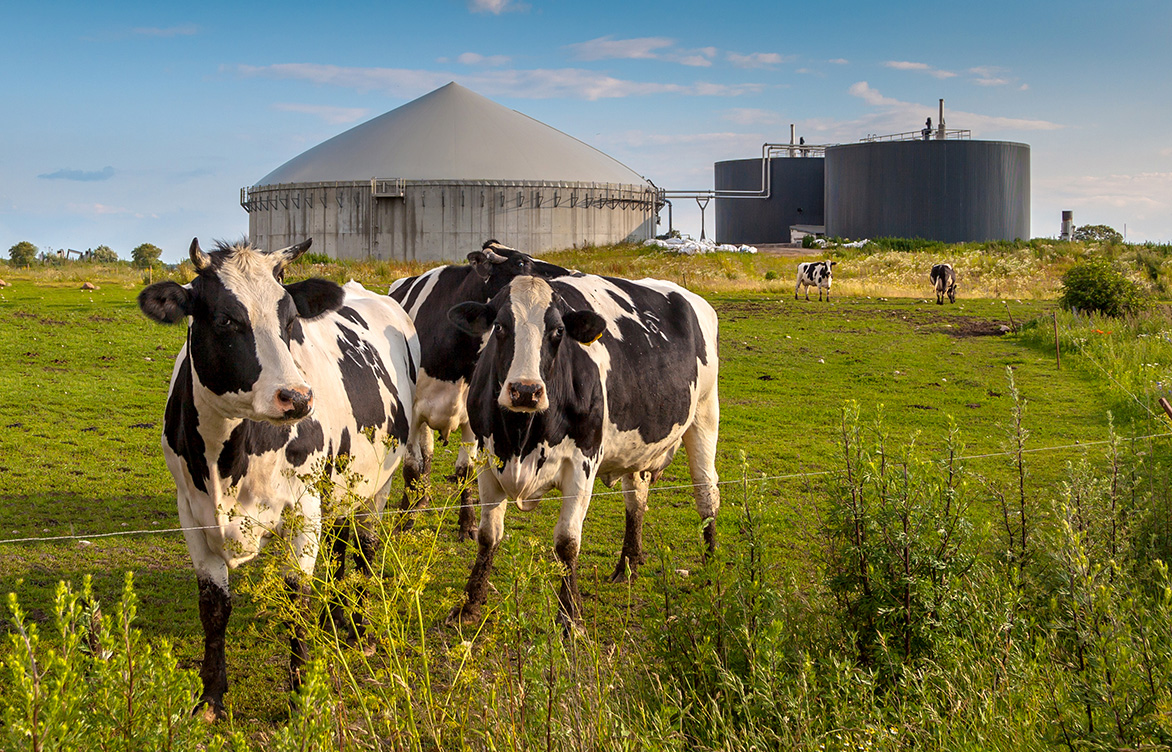
As more and more companies seek to lower their carbon emissions, both short- and long-term solutions are needed to accomplish an economy-wide decarbonization effort. Short-term solutions are available now using existing infrastructure and proven technologies, with advanced solutions on the horizon to provide long-term carbon-free energy.
While there is no magic solution to decarbonize the economy, renewable natural gas (RNG) is one piece of the puzzle that is here now. RNG projects capture methane emissions that are otherwise released directly into the atmosphere, contributing to climate change. By capturing these emissions and using them as an energy source in the form of RNG, the resulting emissions are 25 times less potent, thereby reducing the negative effects on climate change.
Here are six benefits of adding RNG to your energy portfolio:
1. Turn your waste into energy.
Organic waste is an abundant, renewable resource. Wasted food, crop residue, animal manure, and wastewater, among other methane-producing waste sources, can all be recycled into RNG. When left untreated, emissions from these organic waste sources are released directly into the atmosphere where they contribute to climate change. But, when organic waste is converted into RNG instead, methane emissions are captured and turned into an energy source that is much less potent when combusted.
2. Utilize the current infrastructure.
With the vast availability of organic waste, RNG can be used in multiple ways and is easily dispatchable into the current infrastructure, whether used for transportation, thermal energy, or to generate electricity. For example, RNG can be injected into a gas pipeline network, or be compressed or liquified and transported via tanker trucks, making it adaptable to each end use.
3. Achieve air quality benefits.
The air-quality benefits gained from RNG include more than just the capture and repurposing of methane. The process to create RNG captures and destroys other pollutants, such as hydrogen sulfide and carbon dioxide that are entrained in the gas generated from organic material decomposition. These pollutants would otherwise go directly into the atmosphere.
4. Address water-quality concerns.
Water-quality concerns can also be addressed with RNG projects. For example, farm manure is typically stored and treated in lagoons or pits before being land applied as fertilizer, which historically has led to both localized water quality issues as well as cumulative downstream issues due to excess nutrient loading (take the hypoxic zone in the Gulf of Mexico, for example). RNG projects have the opportunity to provide more comprehensive environmental benefits by handling the manure/digestate as a valuable product (i.e., as fertilizer) but dosed in a manner that allows it to be absorbed into the soil. Technological advances are allowing both pre- and post-digester applications to maximize methane recovery while also decreasing downstream impacts of the digestate.
5. Take advantage of legislative incentives.
Legislative programs have been, and continue to be, created to incentivize alternatives to fossil fuels. Not only is RNG recognized under the Renewable Fuel Standard (RFS) as an eligible fuel in the transportation sector, but Low Carbon Fuel Standards (LCFS), such as the California version, also recognize and compensate RNG as an eligible transportation fuel. In addition to these legislative programs, recent funding bills, such as the Inflation Reduction Act (IRA), have earmarked money for RNG investment and expansion (see investment tax credit under Section 48 of the IRA).
6. Meet near-term ESG and sustainability commitments.
With shareholder pressure; environmental, social, and governance (ESG) priorities; and organizational carbon neutrality pledges driving the rapid transition to emerging energy markets, organizations across market sectors are increasingly choosing RNG as a sustainable fuel source to help achieve near-term ESG and sustainability commitments.
For example, two of the largest methane producers/owners—WM and Republic Services—are collectively investing more than $2 billion in RNG projects at their landfills across North America. Other entities are committing to long-term RNG procurement contracts because of the immediate impact it can have on their environmental footprint and brand value. Cosmetics company L’Oréal USA is an excellent example of this effort as the corporation aims to transition to 100% renewable energy worldwide by 2025 and is already meeting this goal in the U.S. by including RNG as part of its approach.
Stop wasting waste
Historically, we have wasted waste and allowed this abundant asset to decompose in the environment. Now is the time to shift our thinking and recognize organic waste as an energy resource and set up the processes, systems, and legislation to recover and repurpose it into RNG.
Already, major corporations are recognizing the benefits and committing to projects and procurement contracts to add RNG to their carbon-balanced energy portfolios. With benefits ranging from air and water quality improvements to the ability to deploy RNG right now in existing infrastructure, this renewable resource can be a very real player in a diversified, sustainable energy mix.
To learn more about how you can reduce your carbon footprint with RNG, contact our team.
Plus, join Jason and other Barr attendees at RNG Works 2023 in Nashville, Tennessee, from September 12–14, 2023. Barr’s Brian Leahy and Kevin Eisen will be presenting at the expo.
About the author
Jason Linkimer is a senior consultant with more than 20 years of experience in the engineering and environmental consulting industry, serving clients across North America. He’s created a strong foundation of technical knowledge in environmental permitting and compliance while also navigating how legislation, regulation, and environmental initiatives interact with an organization’s business model and strategic objectives. Jason leads market analysis and new business development pursuits with a focus on emerging energy markets and ESG/sustainability-related initiatives, recognizing both the environmental benefits and economic opportunity associated with renewable energy, waste reuse, and decarbonization efforts.
Related projects
Expansion-related permitting and review assistance
Barr prepared an air permit application for a Minnesota facility that processes biogas generated by anaerobic digestion at three large dairy farms. The biogas is conditioned into pipeline-quality RNG and injected into a natural gas pipeline. Strategic permitting considerations centered on whether the three gas-processing facilities and the central processing plant should be covered under one permit or permitted separately. Barr used predicted biogas properties to help our client determine achievable operating scenarios that would keep emissions of sulfur dioxide and carbon monoxide below New Source Review and Title V air permitting thresholds if all facilities were grouped under one permit.


